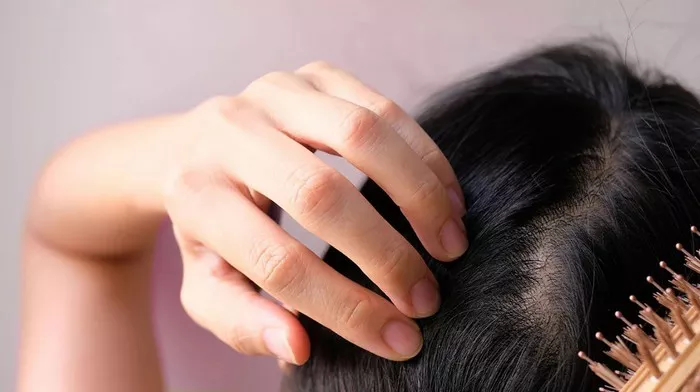Hair fall is a common problem that affects both men and women. Losing some hair on a daily basis is normal, but excessive hair fall can be a cause of concern. It can lead to thinning hair, bald patches, and even complete baldness in severe cases. While there are several causes of hair fall, there are also several things you can do to prevent it. In this article, we will discuss what is good for hair fall.
Causes of Hair Fall
Before discussing what is good for hair fall, it is essential to understand the causes of hair fall. Some of the most common causes of hair fall include:
1. Genetics
If you have a family history of baldness or thinning hair, you are more likely to experience hair fall.
2. Hormonal Changes
Hormonal changes due to pregnancy, childbirth, menopause or an underactive thyroid gland, can cause hair fall.
3. Nutritional Deficiencies
A diet lacking in essential nutrients like vitamins, minerals, and protein can lead to hair fall.
4. Stress
High levels of stress can cause hair follicles to go into a resting phase, leading to hair fall.
5. Medical Conditions
Medical conditions such as alopecia, scalp infections, and autoimmune disorders can cause hair fall.
See Also: How to Prevent Hair Fall in Winter: The Definitive Guide
What Is Good for Hair Fall?
Now that we understand the causes of hair fall let’s look at what is good for hair fall.
1. Balanced Diet
A balanced diet with the right nutrients is essential for healthy hair. Foods rich in iron, zinc, biotin, and vitamin D, like leafy greens, nuts, eggs, and fatty fish, can improve your hair health.
2. Regular Scalp Massages
Scalp massages improve blood circulation to the hair follicles, stimulating hair growth. Use warm oil such as coconut, olive or almond oil and gently massage your scalp for about 10-15 minutes before washing your hair.
3. Hair Care Routine
A proper hair care routine is essential to maintain healthy hair. Washing your hair regularly, using a mild shampoo and conditioner, and avoiding excessive heat styling can prevent hair fall.
4. Stay Hydrated
Drinking plenty of water keeps your body hydrated, making your hair less prone to breakage and hair fall.
5. Reduce Stress
Managing stress through activities like yoga, meditation, and exercise can not only improve your overall health but also prevent hair fall.
Hair Fall Remedies
Apart from the above tips, there are several hair fall remedies that you can try to reduce hair fall.
1. Onion Juice
Onion juice has been found to improve hair growth and reduce hair fall. Apply onion juice to the scalp for 20-30 mins before washing your hair.
2. Aloe Vera Gel
Aloe vera gel has natural enzymes that promote hair growth and reduce hair fall. Apply fresh aloe vera gel to the scalp and leave it on for 30 mins before washing your hair.
3. Green Tea
Green tea contains antioxidants that stimulate hair growth and prevent hair fall. Brew some green tea and apply it to your scalp for 30-40 mins before washing your hair.
4. Egg White Mask
Egg whites contain high levels of protein which helps strengthen hair and prevent hair fall. Mix two egg whites with olive oil, apply to the scalp and leave on for 30 mins before washing your hair.
5. Fenugreek Seeds
Fenugreek seeds are rich in protein and nicotinic acid, which help promote hair growth and reduce hair fall. Soak fenugreek seeds overnight and grind them into a paste. Apply the paste to your scalp and leave it on for 30-40 mins before washing your hair.
When to Consult a Doctor?
While hair fall is a common problem, if you notice excessive hair fall, it is essential to consult a doctor. They can diagnose any underlying medical conditions that may be causing hair fall and recommend the appropriate treatment.
Conclusion
Hair fall can be distressing, but by following a proper hair care routine and incorporating a healthy diet, you can prevent hair fall. Additionally, the hair fall remedies mentioned in this article can help reduce hair fall and promote hair growth. If you are experiencing excessive hair fall, it is always best to consult a doctor to rule out any underlying medical conditions.


